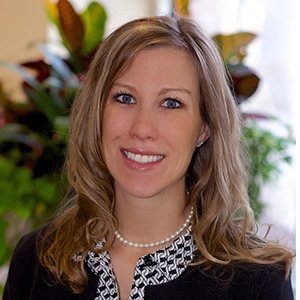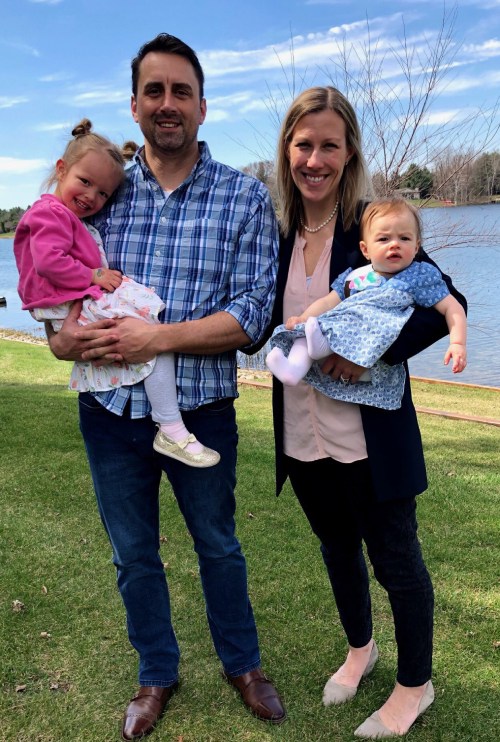
Heather Jones embraces A3 thinking to spark systemwide changes
11/21/19 11:02:am
Dr. Jones is also the owner of the Rogers Operating System’s Clinical Value Stream, which aims to standardize high-quality, evidence-based treatments for patients across all levels of care and campuses.
Dr. Jones first heard of Rogers when cheering on the Packers in the 2011 Superbowl. She was introduced to a psychiatrist at Rogers, who discussed the work that we do here. After learning more about the opportunities at Rogers, Dr. Jones says that she met with Brad Riemann, PhD, and came aboard as an intern. A year later she was hired as a therapist in what was then the Child and Adolescent Center.
“It was great to work with kids and their families and see them get better—seeing the treatment that we provided the patients and their families have an impact was really inspiring,” she says.
Along with the quality of care, the team atmosphere at Rogers is something Dr. Jones appreciated when she started working here and is what keeps her here today.
“I think the culture at Rogers is friendly, warm, and inviting,” Dr. Jones says. “The people I worked with back then and now care about each other and the patients that they treat.”
Dr. Jones says that her experience in a variety of roles at Rogers—including behavioral specialist, therapist, and clinical supervisor—helps her be effective as director of clinical services. Her perspective allows her to make decisions that benefit both patients and care team members.
“I really am invested in improving the employee experience and eliminating waste in people’s workflow or non-value tasks to improve patient care. It’s important to me to support the people who are supporting our patients,” she says.

“One way that it’s changed my thinking is being in the Gemba—asking the people doing the work to share their opinions or watching them do the work before we make decisions about that work,” she explains. “Another key aspect is reinforcing the importance of collecting data. The psychologist in me recognizes that when our emotions are involved, our judgment is can be poor. So, collecting data to help inform decisions before they are made is critical.”
Looking ahead to Rogers’ future, Dr. Jones says that she’s most excited about the “landmark work we’re doing in behavioral health.”
“It’s important to remember that the outcomes data we are collecting and high-quality treatment we are able to offer as a result is unprecedented in the field of behavioral health. We have the opportunity to lead the way in terms of how people who are struggling with mental health and addiction are effectively treated. That is a very cool and humbling opportunity,” she says.
Getting to know Dr. Jones
Dr. Jones enjoys spending time with her family, playing euchre, and being outside “when it’s above 40 degrees.” One fact that surprises some people is that she grew up on a farm.





